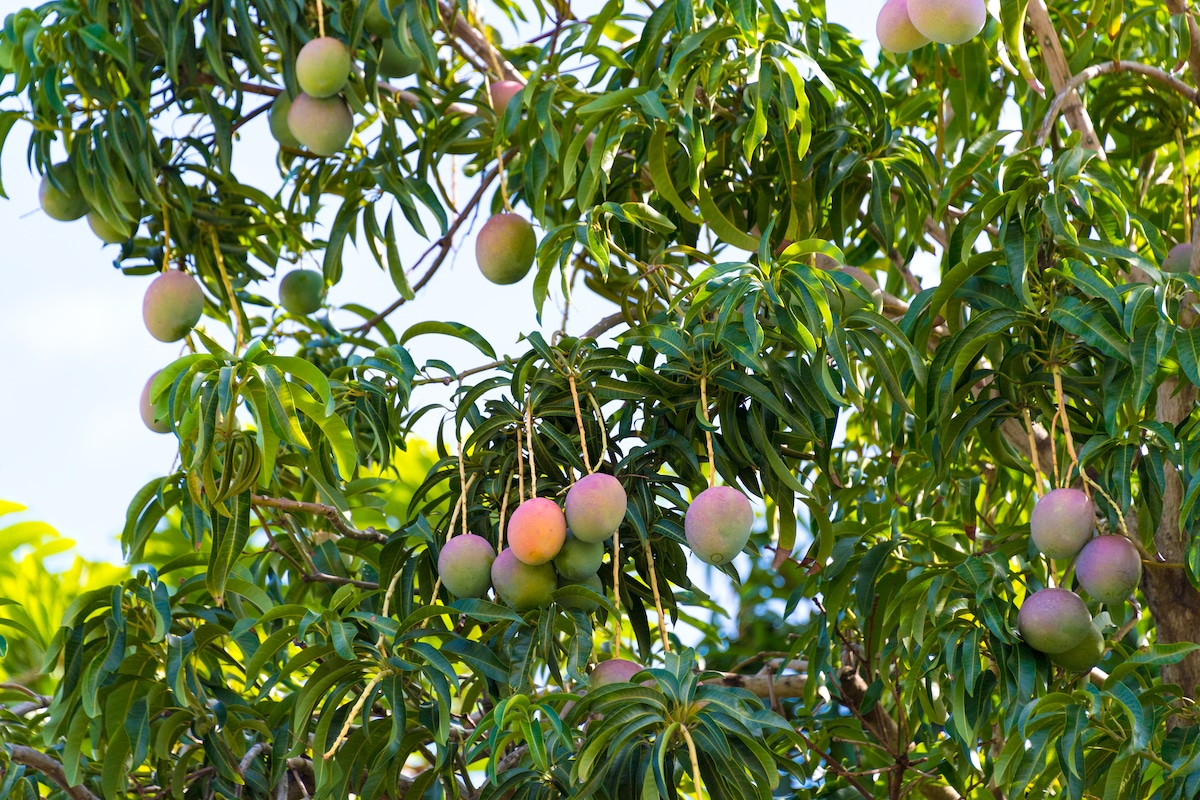Farmers in Italy Switch to Mangoes, Other Tropical Fruits in Response to Climate Change

 Why you can trust us
Why you can trust us
Founded in 2005 as an Ohio-based environmental newspaper, EcoWatch is a digital platform dedicated to publishing quality, science-based content on environmental issues, causes, and solutions.
The new hottest crop in Italy? Mangoes. Amid warming temperatures caused by climate change, some farmers in Italy are cutting back on growing traditional crops of the country, instead focusing on producing fruits that are commonly grown in tropical areas.
Mango farming in particular has seen a boost, rising from 10 hectares in 2004 to 500 hectares in 2019. As of this year, mango farming spanned 1,200 hectares across Italy, according to data from Coldiretti, an agricultural free trade association.
The association reported that amid heat, extreme rainfall, catastrophic flooding and other impacts of climate change, there has been a 10% decline in wheat production, 60% decline in cherry production, 63% for pears, 70% for honey, and 12% for tomatoes and grapes.
But there has been growth in the production of tropical fruits, including mangoes, limes, avocado, passion fruit and bananas.
“Production of Italian-grown tropical fruit, driven by climate change, will profoundly modify consumer behavior and the investment choices of agricultural firms in coming years,” Coldiretti said, as reported by Reuters.
Although tropical fruits have been grown on Sicily for many years, these farms can now be found around the southern part of the country, including in Puglia and Calabria.
“Citruses are our tradition, but once they were also an innovation,” Francesco Bilardi, who runs a farm with his two brothers in Reggio Calabria, told Reuters. Their farm has been producing mango, avocado, passion fruit and annona since 2020. “For us, it is normal to maintain our traditions while adding some innovation.”
Mushrooms are also having a moment in Italy. The heat and excess rain led to a increase of 20% for porcini mushrooms this year compared to 2022, Coldiretti reported.
Meanwhile, some of the country’s staple crops are becoming more and more challenging to grow, including wine grapes, which are struggling across Europe because of climate change. Further, the same conditions allowing for an explosion in porcini mushrooms has also allowed the fungus Plasmopara viticola to damage grapevines in Italy.
Experts are warning farmers that tropical fruits are not exempt from the impacts of climate change. These crops will also be at risk from the droughts, flooding and other extreme weather events happening in Italy.
“Tropical products are not the magic wand that allows farmers to produce risk-free,” Lorenzo Bazzana, economic coordinator for Coldiretti, told Reuters.
Subscribe to get exclusive updates in our daily newsletter!
By signing up, you agree to the Terms of Use and Privacy Policy & to receive electronic communications from EcoWatch Media Group, which may include marketing promotions, advertisements and sponsored content.

 233k
233k  41k
41k  Subscribe
Subscribe 



